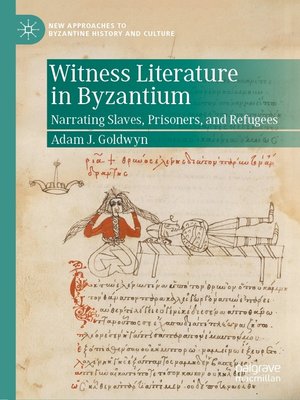Witness Literature in Byzantium
ebook ∣ Narrating Slaves, Prisoners, and Refugees · New Approaches to Byzantine History and Culture
By Adam J. Goldwyn

Sign up to save your library
With an OverDrive account, you can save your favorite libraries for at-a-glance information about availability. Find out more about OverDrive accounts.
Find this title in Libby, the library reading app by OverDrive.



Search for a digital library with this title
Title found at these libraries:
| Library Name | Distance |
|---|---|
| Loading... |
This book analyzes Byzantine examples of witness literature, a genre that focuses on eyewitness accounts written by slaves, prisoners, refugees, and other victims of historical atrocity. It focuses on such episodes in three nonfictional texts – John Kaminiates' Capture of Thessaloniki (904), Eustathios of Thessaloniki's Capture of Thessaloniki (1186), and Niketas Choniates' History (ca. 1204–17) – and the three extant twelfth-century Komnenian novels to consider how the authors' positions as both eyewitness and victim require an interpretive method that distinguishes witness literature from other kinds of writing about the past. Drawing on theoretical developments in the fields of Holocaust and Genocide Studies (such as Giorgio Agamben's homo sacer and Michel Foucault's biopolitics) and comparisons with modern examples (Elie Wiesel's Night and Primo Levi's If This is a Man), Witness Literature emphasizes the affective, subjective, and experiential in medieval Greek historical writing.







